Physics
Sign up for our newsletter
We summarize the week's scientific breakthroughs every Thursday.
-
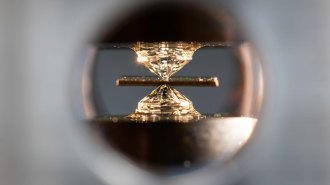 Physics
PhysicsSuperconductor research surges forward despite controversy over stunning claims
After retractions from Ranga Dias’ group, high-pressure physicists are feeling the squeeze, fearing the controversy will tarnish other research.
-
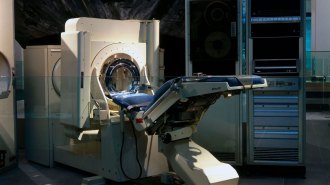 Health & Medicine
Health & Medicine50 years ago, X-rays provided an unprecedented look inside the brain
CT scans can now image the whole body and are even used in other scientific fields such as archaeology, zoology and physics.
-
 Chemistry
ChemistryChemists turned plastic waste into tiny bars of soap
Researchers developed a process to turn plastic waste into surfactants, the key ingredients in dozens of products, including soap.
-
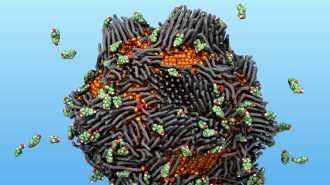 Chemistry
ChemistryMagnetic ‘rusty’ nanoparticles pull estrogen out of water
Iron oxide particles adorned with “sticky” molecules trap estrogen in water, possibly limiting the hormone’s harmful effects on aquatic life.
By Skyler Ware -
 Physics
PhysicsHow to run a marathon in under two hours
Running between other people reduces air resistance. A new study identifies optimal positioning of such drafting formations. Watch out, marathon records.
-
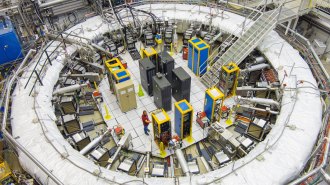 Particle Physics
Particle PhysicsThere’s a new measurement of muon magnetism. What it means isn’t clear
The measurement, from the Muon g−2 experiment, is the most precise yet. But recent theoretical predictions are a bit muddled.
-
 Physics
PhysicsCenturies on, Newton’s gravitational constant still can’t be pinned down
A new experiment could finally answer the question 'What is the strength of gravity?' But it's a hard test to do.
-
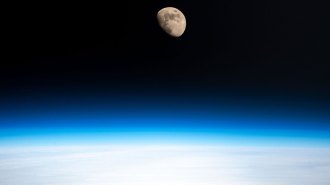 Physics
PhysicsMass has different definitions. The moon’s orbit confirms two are equivalent
Laser measurements of the moon’s orbit square with Newton’s third law of motion and Einstein’s theory of gravity.
-
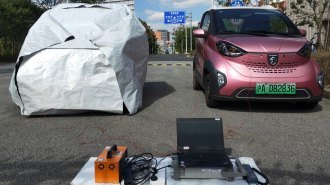 Materials Science
Materials ScienceThis ‘thermal cloak’ keeps spaces from getting either too hot or cold
A new thermal fabric prototype could help keep cars, buildings and other spaces a comfortable temperature during heat waves while reducing CO₂ emissions.
By Skyler Ware -
 Chemistry
ChemistryTear-resistant rubbery materials could pave the way for tougher tires
Adding easy-to-break molecular connectors surprisingly makes materials harder to tear and could one day reduce microplastic pollution from car tires.
By Skyler Ware -
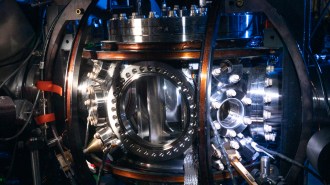 Physics
PhysicsElectrons are extremely round, a new measurement confirms
The near-perfect roundness deepens the mystery behind how the universe came to be filled with matter as opposed to antimatter.
-
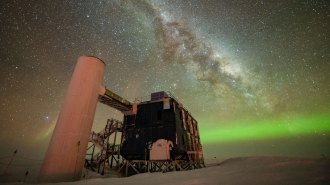 Physics
PhysicsNeutrinos offer a new view of the Milky Way
Physicists turned to AI to help map out the newfound origins of ghostly neutrino particles coming from deep in the Milky Way.